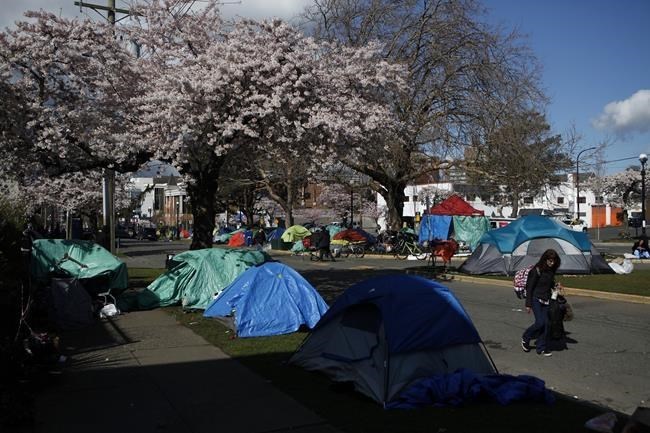A pair of new reports say Canada is undergoing a "K-shaped recovery," with working-class Canadians going deeper into debt while those at the top prosper.
The two reports released Tuesday said the uneven recovery is amplifying economic disparities that existed pre-pandemic and widening the gap between the haves and have-nots.
With the second wave of COVID-19 intensifying across the country, both reports suggest the divide between the rich and poor in Canada could worsen.
The affordability index by BDO Canada Ltd. estimates that nearly two in five Canadians said their personal finances deteriorated during the first wave, while one in five Canadians are better off.
The index, based on polling data by the Angus Reid Group, found that respondents who were worse off are nearly four times more likely to say their debt load is overwhelming.
Meanwhile, the latest MNP Ltd. consumer debt index said the pandemic recession is putting a spotlight on inequalities between the well-off and those dealing with job losses, debt, eviction and food insecurity.
Grant Bazian, president of MNP, said his firm's index "highlights the divergent experiences of Canadians during COVID."
"While some are fortunate enough to be able to continue working in their present jobs, but from home, others continue to struggle with financial uncertainty and not knowing whether their job will still be around after the pandemic,” Bazian said in a statement.
The MNP index, based on polling data by Ipsos, found that over half of the millennials surveyed said they regret the amount of debt they’ve taken on in life.
Many households reported being just hundreds of dollars away from bankruptcy, a sign they're living paycheque to paycheque.
MNP said 44 per cent of households earning $40,000 to $60,000 are $200 or less away from insolvency, including 22 per cent who are already insolvent.
Both reports underscore a yawning chasm between Canadians who are losing ground and those whose financial situation has improved during the pandemic or hasn't changed.
Doug Jones, president of BDO Debt Solutions, said the firm's affordability index shows Canadians are struggling more and more with the cost of living.
He said COVID-19 has prompted Canadians to cut back on spending and save more, but that people are also finding it more difficult to keep up with debt.
"These factors will likely put long-term stress on families and the economy," Jones said in a statement. "Now is the time to keep a close eye on household budgets and avoid debt whenever possible."
The survey found that two-thirds of Canadians with debt cannot keep up with their debt payments or have had to make sacrifices in their budgeting.
While this typically involves foregoing non-essential “nice-to-have” purchases like entertainment or recreation, the survey found that nearly a quarter of Canadians forego essentials like food or clothing.
The survey also showed that residents of British Columbia, Alberta and Ontario were more likely to have added debt during the pandemic.
Meanwhile, Canadians who are saving more tend to be young, university educated and earn more than $100,000, the survey found.
This cohort tended to shift spending away from non-essentials such as restaurants and travel into savings — reducing concerns about debt.
The Angus Reid online survey, in partnership with BDO Canada, included 2,047 Canadian adults surveyed between Sept. 1 and Sept. 8.
The Ipsos online poll, conducted for MNP between Sept. 1 and Sept. 3, included 2,001 Canadians.
According to the polling industry’s generally accepted standards, online surveys cannot be assigned a margin of error because they do not randomly sample the population.
This report by The Canadian Press was first published Oct. 13, 2020.
Brett Bundale, The Canadian Press
